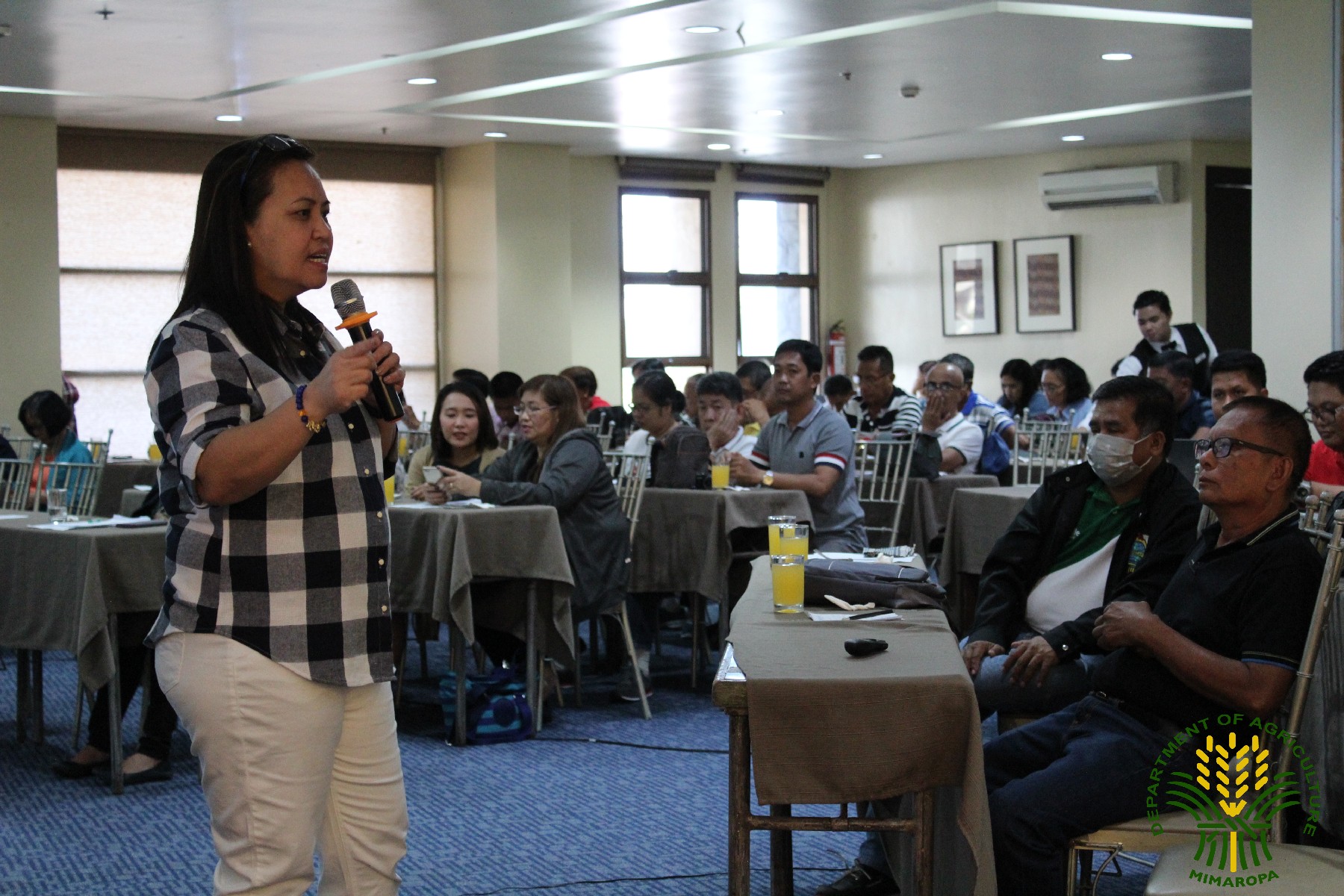Department of Agriculture-MIMAROPA’s Rice Program convened the Provincial, Municipal and City Agriculturist and Officers of the Region on March 21-22.
This is to discuss their plans and programs as well as address the issues and concerns regarding rice production of the region.
The meeting is held yearly with other DA’s regional banner programs, but for this year, Rice Program facilitated it on their own so that the MAOs will only concentrate on them, according to its Regional Focal Person Ma. Theresa Aguilar.
Aguilar revealed that the program has Php755-M implementing budget for this year.
The budget will be spending on its three main targets. Those are improving competitiveness and farm income, enhancing resilience to disasters and climate risks, and ensuring access to safe and nutritious rice.
Under their plan to improve competitiveness and farm income are to increase the average yield of the farmers and reduce the production the cost.
“The industry is competitive if the wholesale price of domestic rice can compete with imported rice,” she said explaining that there will be a 35% tariff for the imported rice as a provision under the RA 11203 or Rice Tarrification and Import Liberalization Law.
The program sees to make the local rice industry competitive through providing high quality seeds (HQS) such as hybrid and inbred, improvement of irrigation facilities, establishment of Rice Model Farms to promote the use of the HQS, conduct of Farmers Field School, financing research and development initiatives, and support to seed quality (Seed Exchange Program, Seed Reserve, and conduct of Seed Growers Training).
To reduce the production cost the program will provide facilities for farm production, post-harvest, and other related machinery and equipment.
While in enhancing resiliency to disaster and climatic risks the Regional Rice Program will be having a reserve of certified seeds in all of the Region’s provinces and seed multiplication of adverse tolerant rice varieties. Backhoes and hauling trucks will also be positioned to all DA stations. Survival and Recovery (SURE) Loan will also be made available to affected farmers.
To ensure the access to safe and nutritious rice there will be an extensive promotion of Good Agricultural Practices on Rice Production, support to traditional rice varieties and organic rice farming, and promotional campaigns such as caravans, fun runs, and rice summits.
Granting of recognition and incentives to their partners in program, implementers, and beneficiaries will also continue as gratitude to their dedication in carrying the department interventions.
These plans and programs are anchored in the 2019-2040 Rice Industry Road Map that focuses on competitiveness, diversification, food safety, and sustainability.
Other topics discussed
Before presenting their 2019 plans and programs, they have speakers from Philippine Crop Insurance Corporation and Agricultural Credit Policy Council to talk about the insurance and loan policy of the Agri-Department especially now that among the flagship program of the DA Secretary Emmanuel Pinol is to offer fast, accessible, and easy financial support to all farmers.
Issues on the implementation of the new law which is the RA 11203 or the Rice Tariffication and Import Liberalization were also discussed in the three-day activity. To compete with the influx of imported rice in the market, Ms. Aguilar shared the RCEF that will be added to the current budget of the program. The RCEF according to her will be divided to 50% for mechanization including solar-irrigation, 30% for rice seed development, propagation and promotion, 10% expanded rice credit access, and 10% for rice extension services.
The longtime issue on data differences between Philippine Statistics Authority and municipal surveys were also addressed. Ronald Degala one of the Rice Program staff presented a formula that will be standardized for the harmonization of their data.
The attendees were also advised to take cautions of the extended El Nino Phenomenon that greatly affects the rice farmers. According to the presenter, Mr. Randy Pernia of Regional Disaster Risk Reduction Management, the said calamity is expected to last until June. They have warned on the pests that infest the farms due to the weather. He also shared that the Region already coordinated to different agencies to assist the affected the farmers.
Other topics discussed were the Guidelines of the Agricultural Competitiveness Enhancement Fund Lending Program and Scholarship Grant.


